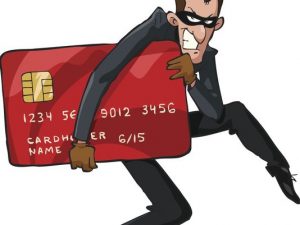 Most frauds are revivals of old schemes that have worked well in the past. The fraudsters may approach the victim in person, by telephone, fax, or over the Internet. This contact is unexpected and the victim often has no prior knowledge of the suspect. They will often pose a situation or a need that the victim was not aware of before the contact.
Most frauds are revivals of old schemes that have worked well in the past. The fraudsters may approach the victim in person, by telephone, fax, or over the Internet. This contact is unexpected and the victim often has no prior knowledge of the suspect. They will often pose a situation or a need that the victim was not aware of before the contact.
Most fraudsters or “con-artists” will make themselves out to be expert, legitimate, and/or persons in authority in order to gain the trust of the victim. To lend an air of authenticity to the scam, they will often piggy back their fraud onto a current legitimate business or societal trend that the victim is likely to be aware of.
These individuals who are using modern techniques rely on the same principals as those used in the past. They will insist on going outside “normal” payment routes and will insist that this is urgent, a onetime offer, and that all will be lost if not acted upon immediately. Legitimate companies may put pressure on you, but the deal will likely still be there tomorrow.
Typically the most vulnerable persons in society are also the most susceptible victims to this type of fraud; it is often the poor, desperate, lonely or the elderly that are most at risk.
Protecting Yourself From Fraud
Thousands of Canadians are defrauded each year. The scams come in a number of ways – over the phone, on the internet, or in the mail.
The first line of defense is to be skeptical of any approach that you did not initiate.
Remember: “If it sounds too good to be true…”
Do not bow to time pressure imposed by the individual – any legitimate deal will be there tomorrow. Take steps to guard your personal information at all times – do not give it out over the phone or the Internet unless you are 100 percent certain of the individual at the other end. You may need to verify the source through other means.
When making purchases over the phone or the Internet, take the time to verify the source of the communication through a third party. Most websites have a verification service and reporting system – use them. When you are sure of what you are purchasing and where it is located, use one of the established, third party payment companies. They are bonded and may assist you if you are cheated. If the seller insists  on going through a different process (such a wire transfer), then there is a good chance that individual is attempting to defraud you.
on going through a different process (such a wire transfer), then there is a good chance that individual is attempting to defraud you.
Minimize your risk with the following tips.*
- Never send money to someone claiming you’ve won a prize.
- Before you reveal any personally identifying information, find out how it will be used and if it will be shared.
- Pay attention to your billing cycles. Follow up with creditors if your bills don’t arrive on time.
- Guard your mail. Deposit outgoing mail in post office collection boxes or at your local post office. Promptly remove mail from your mailbox after delivery. Ensure mail is forwarded or re-routed if you move, or change your mailing address.
- Utilize passwords on your credit card, bank and phone accounts. Avoid using easily available information like your mother’s maiden name, your birth date, and the last four digits of your SIN or your phone number.
- Minimize the identification information and number of cards you carry.
- Do not give out personal information on the phone, through the mail or over the internet unless you have initiated the contact or know whom you’re dealing with.
- Give your SIN only when absolutely necessary. Ask to use other types of identifiers when possible.
- Don’t carry your SIN card; leave it in a secure place.
*Courtesy of the Canadian Anti-Fraud Centre
 When you have been defrauded, we recommend that you report the matter immediately to the local police with jurisdiction for where the fraud took place. Many of these frauds are not possible to follow-up in any practical sense; especially those committed over the phone or Internet. Nevertheless, the Weyburn Police Service has an interest in knowing about these events and would appreciate a timely report from you. You may also report in person at our Police Headquarters located at 400 Coteau Avenue.
When you have been defrauded, we recommend that you report the matter immediately to the local police with jurisdiction for where the fraud took place. Many of these frauds are not possible to follow-up in any practical sense; especially those committed over the phone or Internet. Nevertheless, the Weyburn Police Service has an interest in knowing about these events and would appreciate a timely report from you. You may also report in person at our Police Headquarters located at 400 Coteau Avenue.
If you have been victimized while using a legitimate web based company; you should use their system to report the fraudulent activity. **If you believe your personal information has been compromised, contact your financial institutions as soon as practicable.**
Below are a number of third party monitoring agencies that may assist in tracking and reporting the latest internet and telephone scams:
- Canadian Anti-Fraud Centre : 1-888-495-8501 info@antifraudcentre.ca
- CRA Charities directorate : 1-800-267-2384
- Credit Bureaus – Equifax : 1-800-465-7166 or TransUnion : 1-866-525-0262
- Financial Consumer Agency of Canada : 1-866-461-3222





